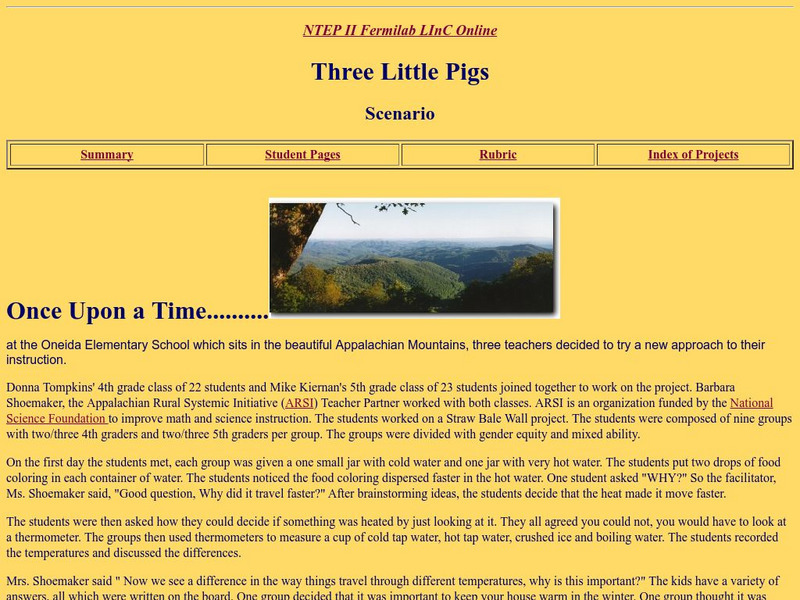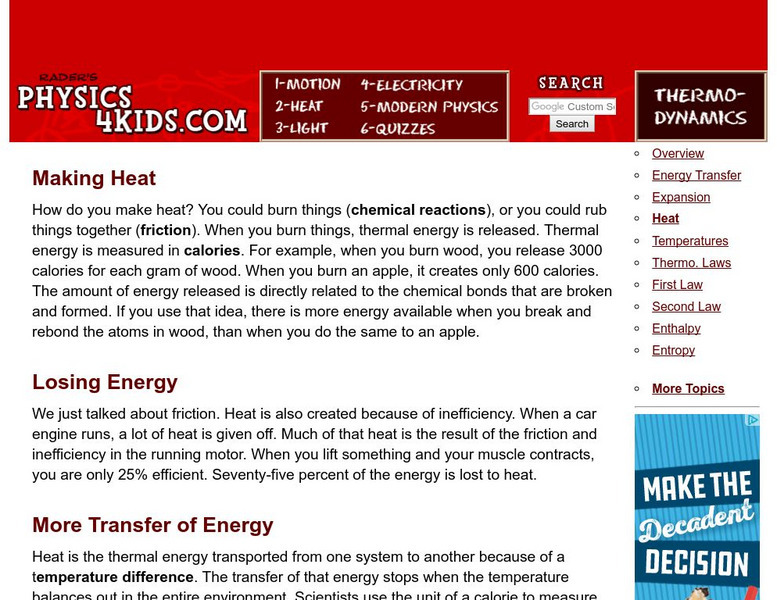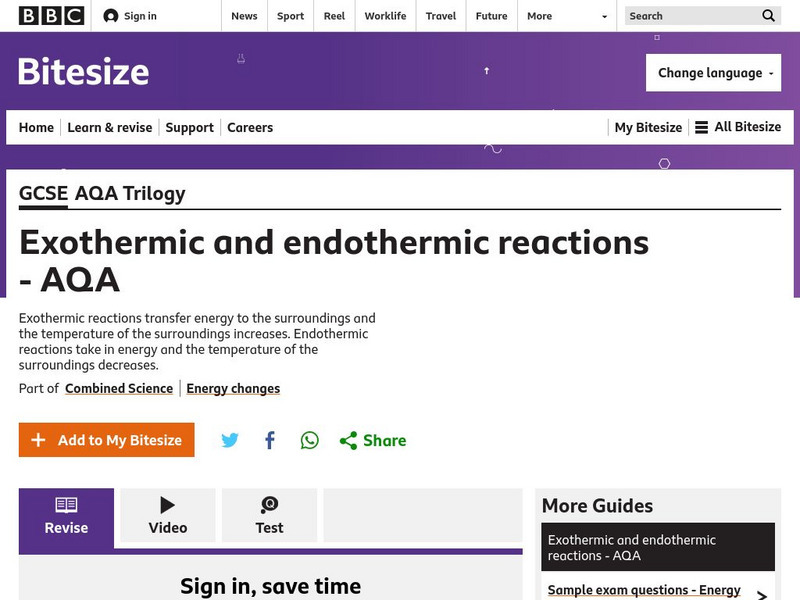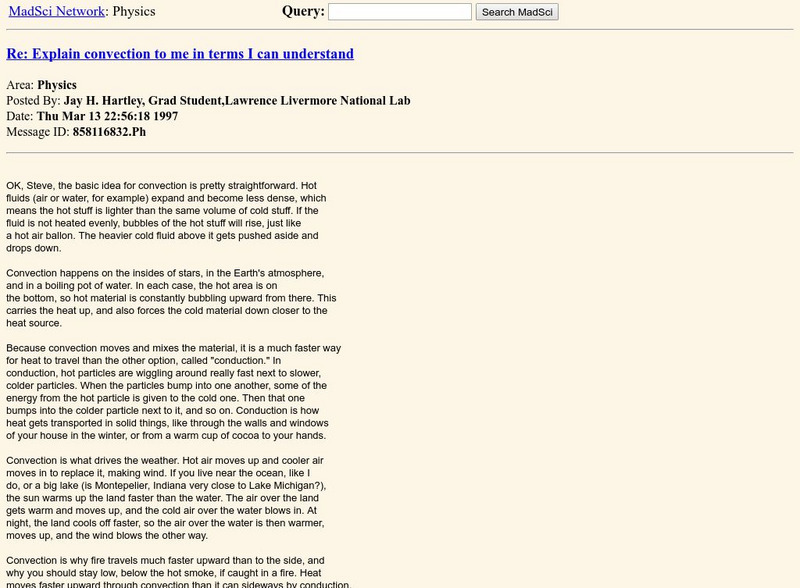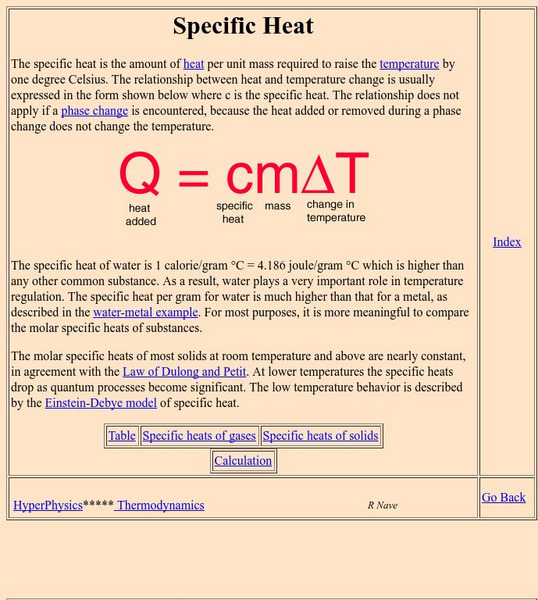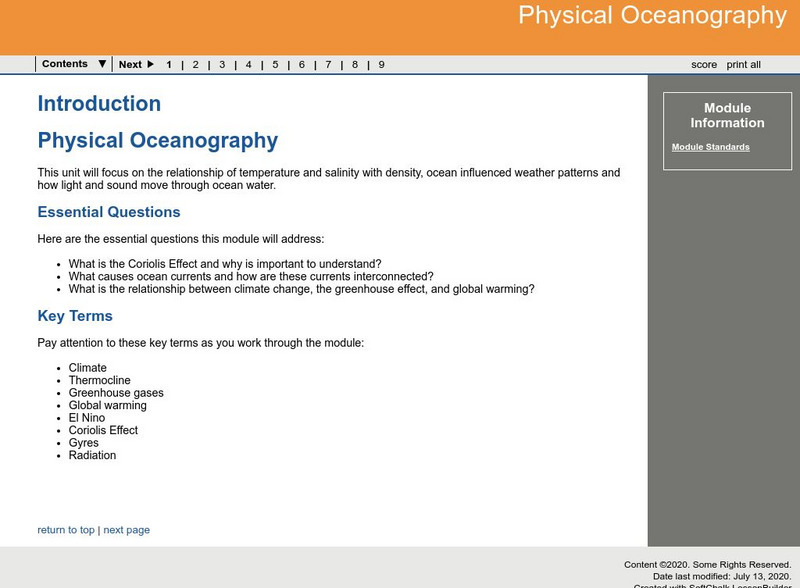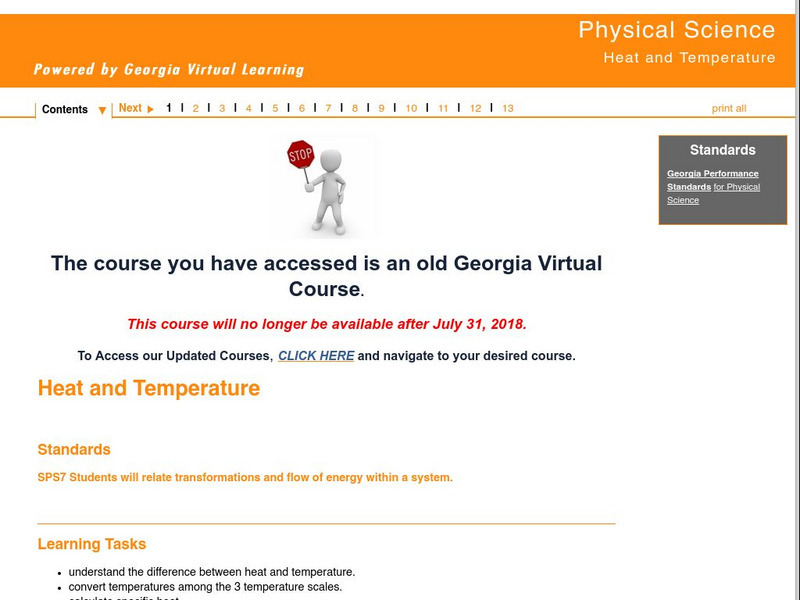Other
Applied Thermodynamics: Diesel Cycle
The P-V diagram for a diesel cycle is provided and discussed at this site from Applied Thermodynamics. The steps of the thermodynamic cycle are labeled (and defined elsewhere). An equation for thermal efficiency is given.
University of Sydney (Australia)
Thermal Physics Module: Ideal Gases [Pdf]
A molecular model of a gas is introduced and explained. Assumptions behind the ideal gas law are presented. The ideal gas law is stated. Charles' law and Boyle's law are derived from the ideal gas law.
Other
Solar Cooking Archive
This website is brought to you by Solar Cookers International. You can view the site in English, German, Spanish, French, Italian and Portuguese. Check out how to build different types of solar cookers.
Other
L in C Online: Three Little Pigs
An energy transfer project for junior high school students is presented and described. Takes the form of a teacher lesson plan. Students may be able to extract some ideas for a project or experiment.
Physics4kids
Physics4 Kids: Thermodynamics and Heat: Heat
Explains how heat is created from a chemical reaction, from friction, or from energy inefficiency, as well as the meaning of specific heat capacity.
Georgia State University
Georgia State University: Hyper Physics: Heat and Thermodynamics
Georgia State University Physics Department privides an incredibly thorough treatment of the laws of thermodynamics. Multiple pages; many informative graphics; opportunities to practice problems and receive immediate feedback.
Chemistry Collective
Chem Collective: Camping Problem
Measure the enthalpy of a reaction and then create a solution warm enough to cook food.
Chemistry Collective
Chem Collective: Coffee Problem
Use the virtual lab to determine how much milk to add to hot coffee to reach the desired temperature
BBC
Bbc: Gcse Bitesize: Exothermic and Endothermic Reactions Aqa
This lesson focuses on Exothermic and Endothermic Reactions. Exothermic reactions transfer energy to the surroundings. Endothermic reactions take in energy from the surroundings. It provides links to a video and a test.
Science Struck
Science Struck: What Is a Bolometer and What Is It Used For?
A bolometer is an instrument used to measure radiant energy. Learn about its history, its advantages, how it works, some different types, and its important applications.
CK-12 Foundation
Ck 12: Heat Flow
[Free Registration/Login may be required to access all resource tools.] In this lesson, students study the difference between reactions that absorb versus release heat as well as how to measure this change in energy.
Colorado State University
Colorado State Univ.: Heat Transfer Resistance Modeling
This site from the Colorado State University discusses the tranfer of heat by conduction and convection. Discussion centers around the application of these two heat transfer mechanisms to engines. The variables that effect the resistance...
Exploratorium
Exploratorium: Give and Take
A description of a museum exhibit that compares the heat radiated from two pieces of metal--one painted black and the other shiny. Great idea stimulus for a student project or lab investigation.
Other
Advanced Thermoelectric: Fundamental Thermoelectrics
Discusses the scientific principles (the Peltier effect) and the reliability and operation of thermoelectric modules. Includes a link to several other pages, one of which contains an animation of their operation.
MadSci Network
The Mad Scientist Network: Physics
A page from the question and answer section of this useful site. The page responds to the user question: "Explain convection to me in terms I can understand." An excellent discussion of the method of convection.
Exploratorium
Exploratorium: Exhibit Cross Reference: Convection Currents
A description of a museum exhibit that illustrates convection and convection currents. Great idea stimulus for a student project or lab investigation.
Georgia State University
Georgia State University: Hyper Physics: Specific Heat
This page from Georgia State University provides information on specific heat. Formulas are included. You can also enter in information into the site and have it calculate it for you.
Lawrence Berkeley National Laboratory
Berkeley Lab: University of California: Electromagnetic Radiation
This page defines electromagnetic radiation. Included are links to more information.
Other
Applied Thermodynamics: Heat Engines
Forward and reverse heat engines are discussed and explained at this site from Applied Thermodynamics. Diagrams are provided. Efficiency equations are given and discussed.
Other
Applied Thermodynamics: Steam Turbine
A steam turbine is defined at Applied Thermodynamics. The individual steps of a steam turbine engine are illustrated and explained.
American Chemical Society
Middle School Chemistry: Molecules in Motion
Students observe, on a molecular level, how heating and cooling affect molecular motion.
Georgia Department of Education
Ga Virtual Learning: Physical Oceanography
A student learning module with a focus on the relationship of temperature and salinity with density, ocean-influenced weather patterns, and how light and sound move through ocean water.
Georgia Department of Education
Ga Virtual Learning: Physical Science: Heat and Temperature
With this learning module, students will understand the difference between heat and temperature, convert temperatures among different temperature scales, and calculate specific heat.
Science Buddies
Science Buddies: Project Ideas: Transferring Heat by Convection in a Tank
In this engineering science fair project, students will determine the most effective method for quickly raising the temperature of a liquid in a tank. The Science Buddies project ideas are set up consistently beginning with an abstract,...
Other popular searches
- Thermal Energy Transfer
- Thermal Energy and Heat
- Thermal Energy Lab
- Thermal Energy Powerpoint
- What Is Thermal Energy
- Transfer of Thermal Energy
- Thermal Energy Worksheets
- Thermal Energy Lessons
- Thermal Energy Florida
- Thermal Energy Crossword
- Thermal Energy Physics
- Temperature and Thermal Energy


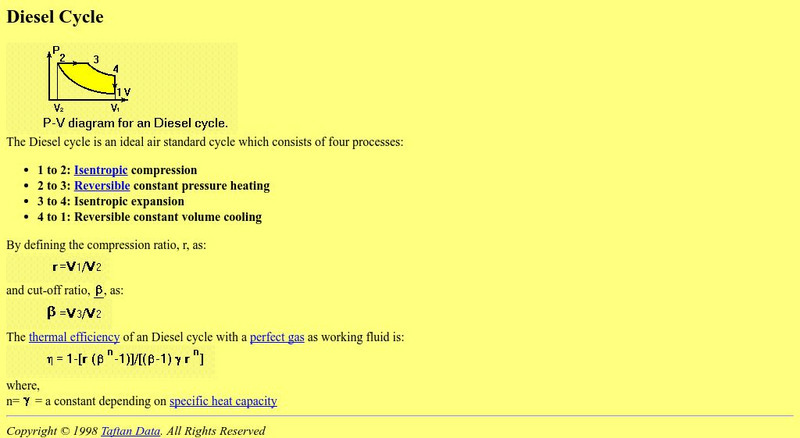
![Thermal Physics Module: Ideal Gases [Pdf] Handout Thermal Physics Module: Ideal Gases [Pdf] Handout](https://d15y2dacu3jp90.cloudfront.net/images/attachment_defaults/resource/large/FPO-knovation.png)
